
BENJAMIN
FRANKLIN
WEALTH AND
WISDOM
BENJAMIN
FRANKLIN
WEALTH AND
WISDOM
THE WAY TO WEALTH
 AND
AND 
THE AUTOBIOGRAPHY OF BENJAMIN FRANKLIN
Published 2019 by Gildan Media LLC
aka G&D Media
www.GandDmedia.com
BENJAMIN FRANKLIN WEALTH AND WISDOM. Copyright 2019 by G&D Media. All rights reserved.
No part of this book may be reproduced or transmitted in any form, by any means, (electronic, photocopying, recording, or otherwise) without the prior written permission of the author. No liability is assumed with respect to the use of the information contained within. Although every precaution has been taken, the author and publisher assume no liability for errors or omissions. Neither is any liability assumed for damages resulting from the use of the information contained herein.
Front cover design by David Rheinhardt of Pyrographx
Interior design by Meghan Day Healey of Story Horse, LLC
Library of Congress Cataloging-in-Publication Data is available upon request
ISBN: 978-1-7225-0274-4
eISBN: 978-1-7225-2368-8
10 9 8 7 6 5 4 3 2 1
Contents
The Way to Wealth
Introduction
In 1732 I first published my Almanac under the name of Richard Saunders; it was continued by me about twenty-five years, and commonly called Poor Richards Almanac. I endeavored to make it both entertaining and useful, and it accordingly came to be in such demand, that I reaped considerable profit from it, vending annually near ten thousand. And observing that it was generally read, (scarce any neighborhood in the province being without it,) I considered it as a proper vehicle for conveying instruction among the common people, who bought scarcely any other books. I therefore filled all the little spaces, that occurred between the remarkable days in the Calendar, with proverbial sentences, chiefly such as inculcated industry and frugality, as the means of procuring wealth, and thereby securing virtue; it being more difficult for a man in want to act always honestly, as (to use here one of those proverbs) It is hard for an empty sack to stand upright.
COURTEOUS READER,
I have heard that nothing gives an author so great pleasure, as to find his works respectfully quoted by other learned authors. This pleasure I have seldom enjoyed; for tho I have been, if I may say it without vanity, an eminent author of almanacs annually now a full quarter of a century, my brother authors in the same way, for what reason I know not, have ever been very sparing in their applauses; and no other author has taken the least notice of me, so that did not my writings produce me some solid pudding, the great deficiency of praise would have quite discouraged me.
I concluded at length, that the people were the best judges of my merit; for they buy my works; and besides, in my rambles, where I am not personally known, I have frequently heard one or other of my adages repeated, with, as Poor Richard says, at the end ont; this gave me some satisfaction, as it showed not only that my instructions were regarded, but discovered likewise some respect for my authority; and I own, that to encourage the practice of remembering and repeating those wise sentences, I have sometimes quoted myself with great gravity.
Judge then how much I must have been gratified by an incident I am going to relate to you. I stopped my horse lately where a great number of people were collected at a vendue of merchant goods. The hour of sale not being come, they were conversing on the badness of the times, and one of the company called to a plain clean old man, with white locks, Pray, Father Abraham, what think you of the times? Wont these heavy taxes quite ruin the country? How shall we be ever able to pay them? What would you advise us to? Father Abraham stood up, and replied, If youd have my advice, Ill give it you in short, for a word to the wise is enough, and many words wont fill a bushel, as Poor Richard says. They joined in desiring him to speak his mind, and gathering round him, he proceeded as follows:
Friends, says he, and neighbors, the taxes are indeed very heavy, and if those laid on by the government were the only ones we had to pay, we might more easily discharge them; but we have many others, and much more grievous to some of us. We are taxed twice as much by our idleness, three times as much by our pride, and four times as much by our folly, and from these taxes the commissioners cannot ease or deliver us by allowing an abatement. However let us hearken to good advice, and something may be done for us; God helps them that help themselves, as Poor Richard says, in his almanac of 1733.
Chapter One
It would be thought a hard government that should tax its people one tenth part of their time, to be employed in its service. But idleness taxes many of us much more, if we reckon all that is spent in absolute sloth, or doing of nothing, with that which is spent in idle employments or amusements, that amount to nothing. Sloth, by bringing on diseases, absolutely shortens life. Sloth, like rust, consumes faster than labor wears, while the used key is always bright, as Poor Richard says. But dost thou love life, then do not squander time, for thats the stuff life is made of, as Poor Richard says. How much more than is necessary do we spend in sleep! forgetting that the sleeping fox catches no poultry, and that there will be sleeping enough in the grave, as Poor Richard says. If time be of all things the most precious, wasting time must be, as Poor Richard says, the greatest prodigality, since, as he elsewhere tells us, lost time is never found again, and what we call time-enough, always proves little enough: let us then be up and be doing, and doing to the purpose; so by diligence shall we do more with less perplexity. Sloth makes all things difficult, but industry all easy, as Poor Richard says; and he that riseth late, must trot all day, and shall scarce overtake his business at night. While laziness travels so slowly, that poverty soon overtakes him, as we read in Poor Richard, who adds, drive thy business, let not that drive thee; and early to bed, and early to rise, makes a man healthy, wealthy and wise.
So what signifies wishing and hoping for better times. We may make these times better if we bestir ourselves. Industry need not wish, as Poor Richard says, and he that lives upon hope will die fasting.
There are no gains, without pains, then help hands, for I have no lands, or if I have, they are smartly taxed. And, as Poor Richard likewise observes, he that hath a trade hath an estate, and he that hath a calling hath an office of profit and honor; but then the trade must be worked at, and the calling well followed, or neither the estate, nor the office, will enable us to pay our taxes. If we are industrious we shall never starve; for, as Poor Richard says, at the working mans house hunger looks in, but dares not enter. Nor will the bailiff nor the constable enter, for industry pays debts, while despair encreaseth them, says Poor Richard. What though you have found no treasure, nor has any rich relation left you a legacy, diligence is the mother of good luck, as Poor Richard says, and God gives all things to industry. Then plough deep, while sluggards sleep, and you shall have corn to sell and to keep, says Poor Dick. Work while it is called today, for you know not how much you may be hindered tomorrow, which makes Poor Richard say, one today is worth two tomorrows; and farther, have you somewhat to do tomorrow, do it today. If you were a servant, would you not be ashamed that a good master should catch you idle? Are you then your own master, be ashamed to catch yourself idle, as Poor Dick says. When there is so much to be done for yourself, your family, your country, and your gracious king, be up by peep of day; let not the sun look down and say, inglorious here he lies. Handle your tools without mittens; remember that the cat in gloves catches no mice, as Poor Richard says. Tis true there is much to be done, and perhaps you are weak handed, but stick to it steadily, and you will see great effects, for constant dropping wears away stones, and by diligence and patience the mouse ate in two the cable; and little strokes fell great oaks, as Poor Richard says in his almanac, the year I cannot just now remember. Methinks I hear some of you say, must a man afford himself no leisure? I will tell thee, my friend, what Poor Richard says, employ thy time well if thou meanest to gain leisure; and, since thou art not sure of a minute, throw not away an hour. Leisure is time for doing something useful; this leisure the diligent man will obtain, but the lazy man never; so that, as Poor Richard says, a life of leisure and a life of laziness are two things. Do you imagine that sloth will afford you more comfort than labor? No, for as Poor Richard says, trouble springs from idleness, and grievous toil from needless ease. Many without labor would live by their wits only, but they break for want of stock. Whereas industry gives comfort, and plenty, and respect: fly pleasures, and theyll follow you. The diligent spinner has a large shift, and now I have a sheep and a cow, everybody bids me good morrow, all which is well said by Poor Richard.
Next page
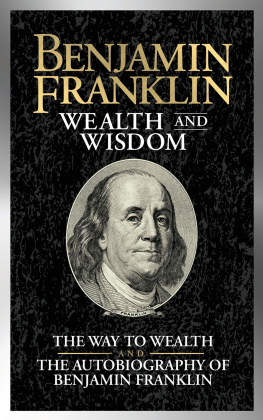
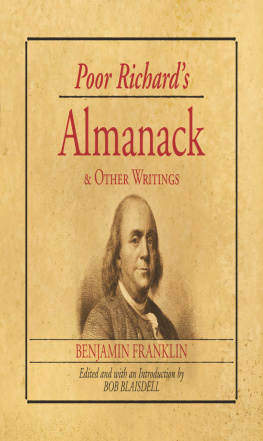
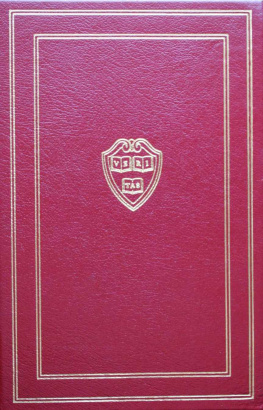
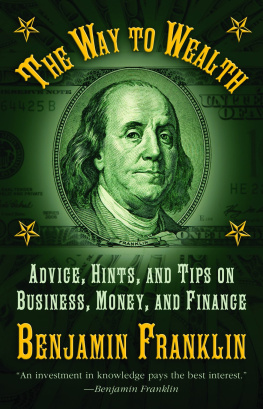
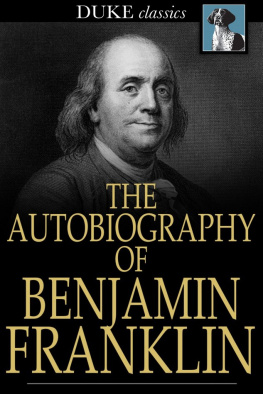
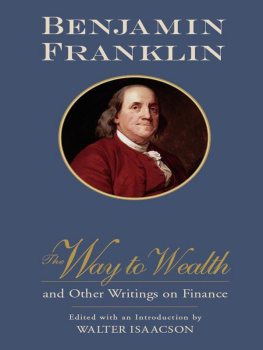

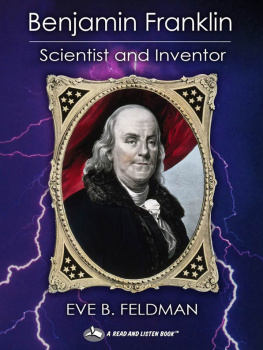

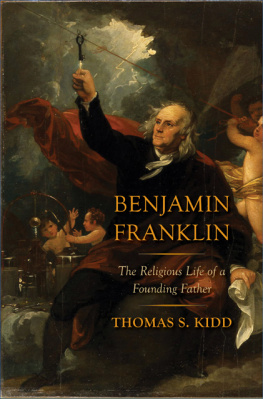
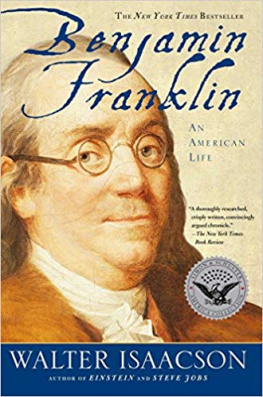
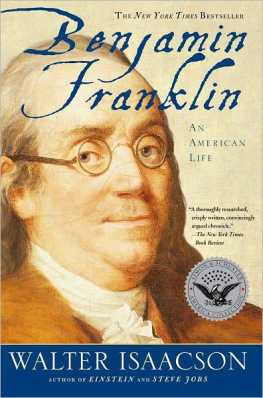

 AND
AND 
